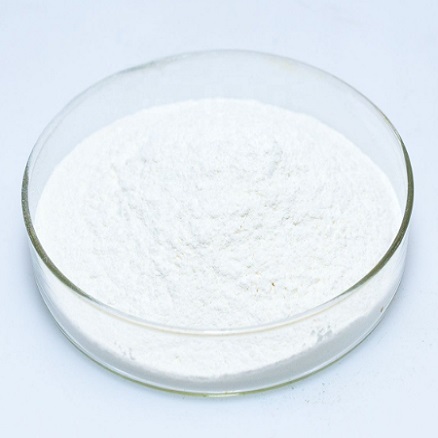Los D-aminoácidos son una clase importante de reactivos quirales e intermedios quirales.


D-prolina CAS#344-25-2
Los D-aminoácidos son una clase importante de reactivos quirales e intermedios quirales.
Propiedades Químicas;La D-Prolina es polvo sólido blanco o amarillo claro a temperatura y presión ambiente, con centro quiral, por lo que es una molécula ópticamente activa, que puede rotar la luz plana polarizada y tiene el valor de spin, el grupo carboxilo y el grupo amino en la D-Prolina son los centros de reacción que pueden ser ionizados, por lo que tiene propiedades ácido-base. En condiciones ácidas, puede protonarse para formar los correspondientes iones de carga positiva; en condiciones alcalinas, puede desprotonarse para formar los iones de carga negativa de la D-prolina. Los grupos carboxilo y amino de la estructura del compuesto pueden sufrir reacciones de condensación para formar enlaces peptídicos. Aplicaciones: La D-prolina se puede utilizar como síntesis orgánica y productos intermedios de química medicinal, principalmente utilizados en moléculas de fármacos y modificación de moléculas biológicamente activas, por ejemplo, la D-prolina se puede utilizar para la síntesis de &B-caroteno, en la conversión de síntesis orgánica, la D-prolina se puede esterificar en condiciones ácidas para producir los derivados aminoéster correspondientes.
El uso I se utiliza en la síntesis de productos farmacéuticos.
El uso 2 se utiliza en la reacción de autocondensación asimétrica de &B-ionilidenoacetaldehído, retinal y compuestos relacionados.
Aplicaciones: Investigación médica:Investigación de proteínas: La D-Prolina se utiliza para estudiar la estructura tridimensional y el mecanismo de plegamiento de las proteínas, especialmente en algunos patrones específicos de plegamiento de proteínas.
Desarrollo de fármacos: En el diseño de fármacos, la D-Prolina puede utilizarse como componente de moléculas de fármacos para modificar la actividad biológica o la estabilidad de la molécula.
Química sintética: Catalizador quiral: La D-Prolina puede utilizarse como catalizador quiral para facilitar la síntesis de determinados compuestos quirales. Esto es muy útil en síntesis orgánica, especialmente en la preparación de fármacos quirales y compuestos funcionales.
Síntesis química: Como reactivo de reacción, la D-Prolina puede utilizarse para sintetizar productos químicos novedosos, incluidas moléculas y materiales orgánicos complejos.
Ciencia de los materiales: Desarrollo de nuevos materiales: Debido a su estructura especial, la D-Prolina puede utilizarse para desarrollar nuevos materiales, especialmente en aplicaciones que requieran disposiciones o funciones moleculares específicas. Alimentación y nutracéuticos: Investigación y aplicaciones: Aunque poco común, la D-Prolina puede utilizarse como ingrediente de investigación en alimentos y nutracéuticos para explorar efectos potenciales sobre la calidad de los alimentos o la salud.
Our professional sales team are waiting for your consultation.